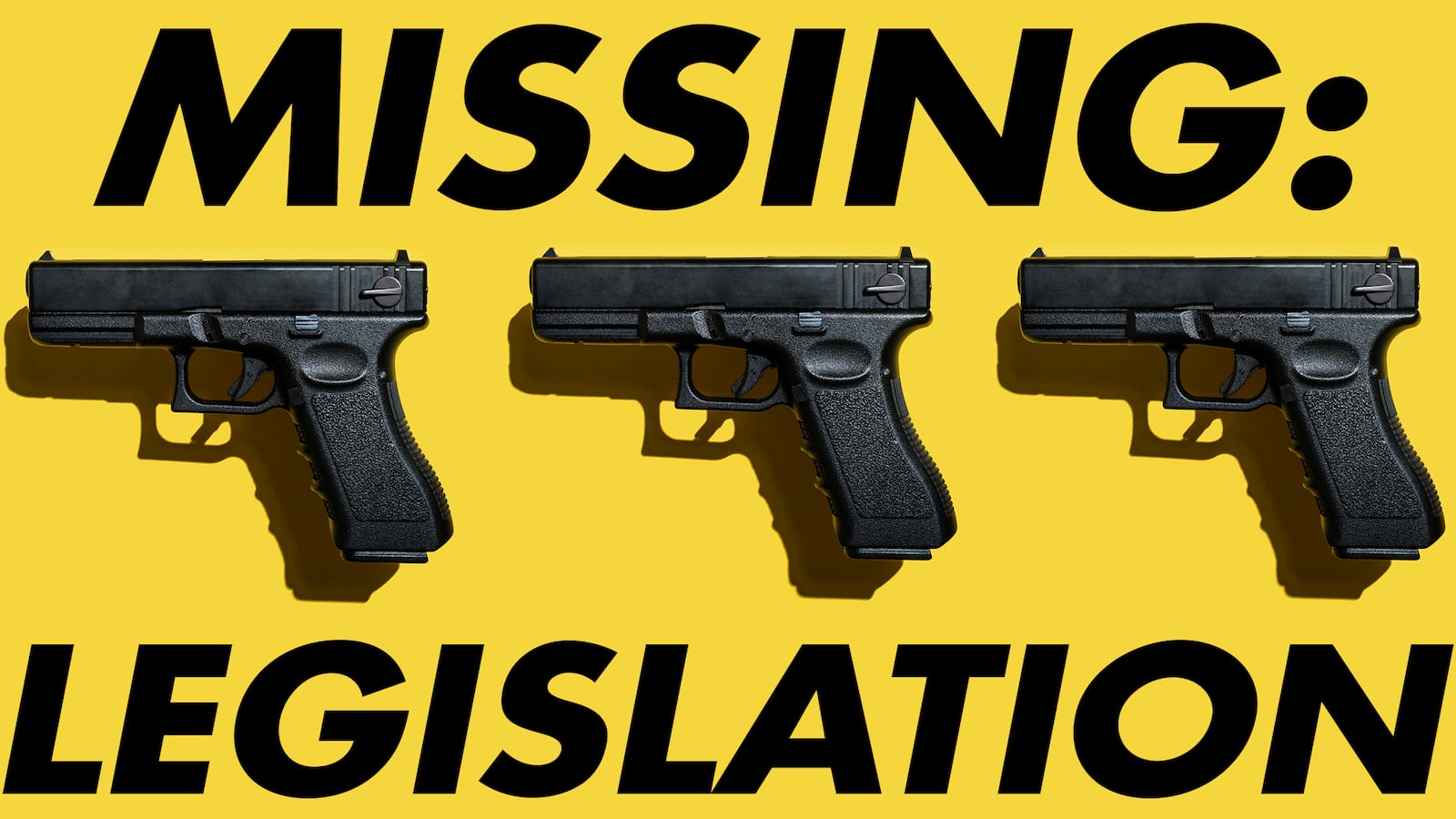Three weeks after the deadliest mass shooting in modern American history, efforts to pass even scaled-down gun-control legislation have effectively stalled on Capitol Hill.
Congressional aides and issue advocates say they see no viable path for passing even the most promising bill: an effort to ban the manufacturing and sale of bump stocks, which were used by the Las Vegas shooter to essentially turn his semi-automatic weapons into fully automatics ones.
“Depressing but not surprising,” is how one senior House Democratic aide put it.
“It’s pathetic,” said another.
The failure of lawmakers to move bump stock legislation comes despite the willingness of several House Republicans to sign on to the measure. A bill introduced by Reps. Carlos Curbelo (R-FL) and Seth Moulton (D-MA) has 20 co-sponsors in total—ten Democratic and ten Republican. But aides say that there is no indication that the House Judiciary Committee is going to consider that bill, or a similar one signed by 173 Democrats. Democrats are expected to ask the Committee’s chairman, Bob Goodlatte (R-VA), to address the matter in the week ahead.
Prospects look bleak in the Senate too. Sen. Dianne Feinstein’s (D-CA) bill banning bump stocks has 39 Democratic co-sponsors but not one Republican, though an aide said that she is still hopeful that she can convince one to sign on to the measure. Even were she to find a GOP co-sponsor there is no guarantee that the chairman of the Senate Judiciary Committee, Chuck Grassley (R-IA), would bring the bill up for consideration.
A committee spokesman for Grassley told The Daily Beast that the committee has been briefed about “regulatory and technical issues involving bump stocks” and that they are “evaluating potential regulatory and legislative proposals.”
“The Judiciary committee is also considering a hearing on bump stocks and the Las Vegas shooting when more complete facts are available from the investigation,” that spokesman, Taylor Foy, added.
The likelihood of passing legislation was always remote, even considering the carnage that took place in Las Vegas, where 58 people were left dead and 546 injured. But when the National Rifle Association said that it would be open to addressing the issue of bump stocks, many observers interpreted it as a pathway towards moving a bill forward.
In reality, it was the closing of the door. The NRA, which holds incredible sway among Republicans on the Hill, proposed that the Bureau of Alcohol, Tobacco & Firearms make a regulatory change to address bump stocks rather than Congress pass a new law to address the matter. Days later, Speaker Paul Ryan (R-WI) echoed the group's line, all but stating that he would not bring a bill to the floor.
“Obviously, it is really frustrating that discussions on the Hill have stalled. Right after Las Vegas, there were a lot of positions and statements made by members on all sides of the aisle and it felt like there was willingness to do something,” said Robin Lloyd, Director of Government Affairs, for the pro-gun control group Americans for Responsible Solutions. “But the NRA came out with their statement a few days later and said this is a problem the ATF should sold. We felt they were giving Congress a way out and that’s what has since happened.”
Those who have worked on gun control legislation argued in real time that the NRA’s initial statement was, in essence, a diversion. They also insisted that a regulatory change at the ATF was insufficient for addressing the issue of bump stocks, if for no other reason than it would be challenged in court and future administrators could role back the regulations. Since then, the ATF Association, which consists of current and former ATF employees, has said that they do not have the authority to actually regulate bump stocks since current law prohibits them from regulating accessories.
“ATF makes rulings based on the statutory authority contained in law and cannot change the law to add new accessories that do not fall within the scope of existing law,” the association wrote.
Authors of the bump stock bills in Congress were hopeful that the ATF Association’s statement would help break the legislative logjam that they were encountering. Ultimately, however, it didn’t. And with every passing day, the likelihood of any movement at all diminished further. Time, as much as the NRA’s opposition, is the enemy of gun control. The Las Vegas shooting may have happened earlier this very month. But three weeks is enough for the Congress’ collective attention to drift elsewhere; certainly in the age of Donald Trump, when there are numerous news cycles a day.
“This is true after every incident. You get a week of ‘We are going to do something,’ and then it’s forgotten,” said one of the aforementioned Democratic congressional aides. “It sucks and it’s a shame. After the next gun incident, I’m sure this will come back up.”





